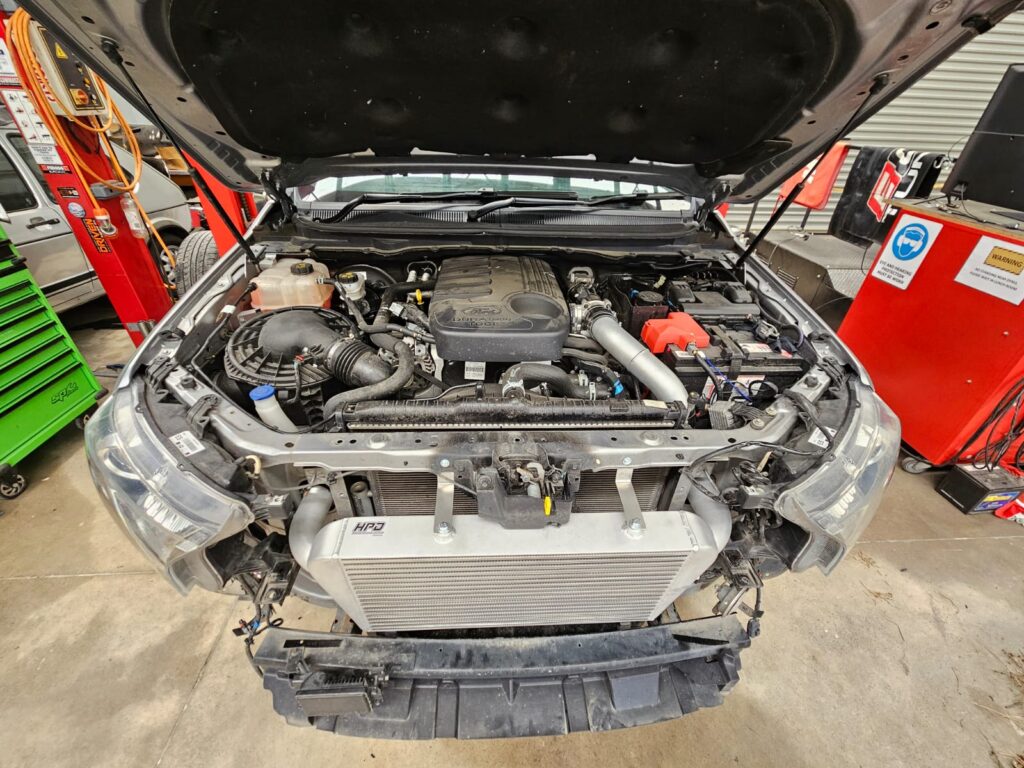8 Benefits Of Fitting An Intercooler
Boost Performance With An Intercooler Upgrade
Fitting an intercooler to your vehicle can significantly boost performance! By cooling the air entering the engine, it helps make the air denser, which means more oxygen for combustion. This leads to more power, better efficiency, and improved throttle response. The intercooler also reduces the risk of engine knock, which can cause engine damage, and allows you to run higher boost pressures with colder intake air temps. Whether you’re looking for more power or better fuel economy, an intercooler is a great upgrade for turbocharged or supercharged engines.
Intercoolers are used in turbocharged or supercharged engines to cool the heated air they produce, ensuring better performance and efficiency.

Key Benefits Of Fitting An Intercooler
1. Improved Engine Efficiency
Cooling the Intake Air: Hot air, which is less dense, limits the oxygen that the engine can take in which reduces engine efficiency. An intercooler lowers the temperature of the air entering the engine. Cooler air is denser, allowing the engine to take in more oxygen. Which improves combustion efficiency, especially in forced induction systems like turbos or superchargers.
2. Enhanced Performance
More Power: By reducing intake air temperature, an intercooler allows for more air and therefore more fuel to be combusted, this increases horsepower and torque.
3. Improved Fuel Economy
Efficient Combustion: With better combustion efficiency due to cooler air, the engine operates more effectively. This can result in better fuel economy, especially under heavy throttle conditions, though this benefit may vary based on driving style and vehicle use.
4. Longevity of Engine Components
Reduced Heat Stress: Prolonged exposure to high temperatures can degrade engine components. An intercooler can reduce this strain, extending the life of vital engine parts.
5. Increased Boost Pressure Potential
Higher Boost Without Overheating: When forced induction systems increase boost pressure, they can raise the intake air temperature significantly. An intercooler helps manage these high temperatures, allowing the engine to run higher boost pressures without causing overheating or damage.
6. Better Throttle Response
Improved Airflow: A well-designed intercooler not only cools the air but can also improve airflow to the engine, leading to quicker throttle response and more immediate power delivery.
7. Heat Management in High-Performance Vehicles
Better Handling of Extreme Conditions: In high-performance and racing applications, an intercooler is essential for managing the heat generated by forced induction systems under extreme conditions, such as during hard acceleration or at high speeds.
8. Tuning Flexibility
Optimized Tuning: With the intercooler keeping intake air temperatures under control, tuners can optimize the fuel-air mixture and ignition timing for better performance. This enables more aggressive tuning that can extract more power from the engine without the risk of engine damage.
Petrol Engine-Specific Benefits
Preventing Knock: High intake temperatures can lead to engine knocking or detonation, which reduces performance and can damage the engine. An intercooler helps prevent this by maintaining a lower air temperature, allowing for more aggressive tuning and boosting without the risk of knocking.
Book Your Intercooler Install and ECU Tune Now
In summary, fitting an intercooler improves the overall performance, efficiency, and longevity of a turbocharged or supercharged engine. It also offers increased power, better fuel economy, more powerful tuning results and more robust protection for the engine against heat-related issues.
Advanced Tuning offers New Zealand’s best car tuning, customised to your vehicle’s needs and tested on our 4WD dyno. If you’re interested in adding an intercooler and tuning your turbo or supercharged engine, fill out the contact form to learn more.
"*" indicates required fields
